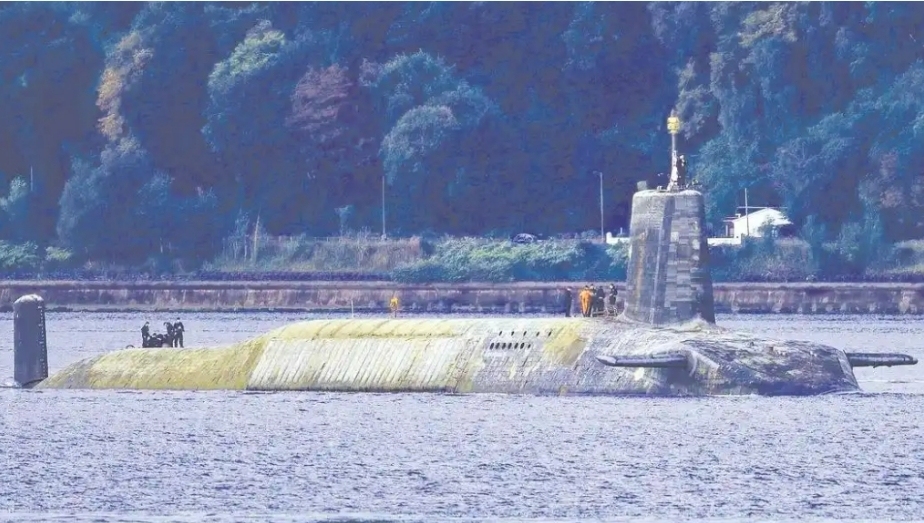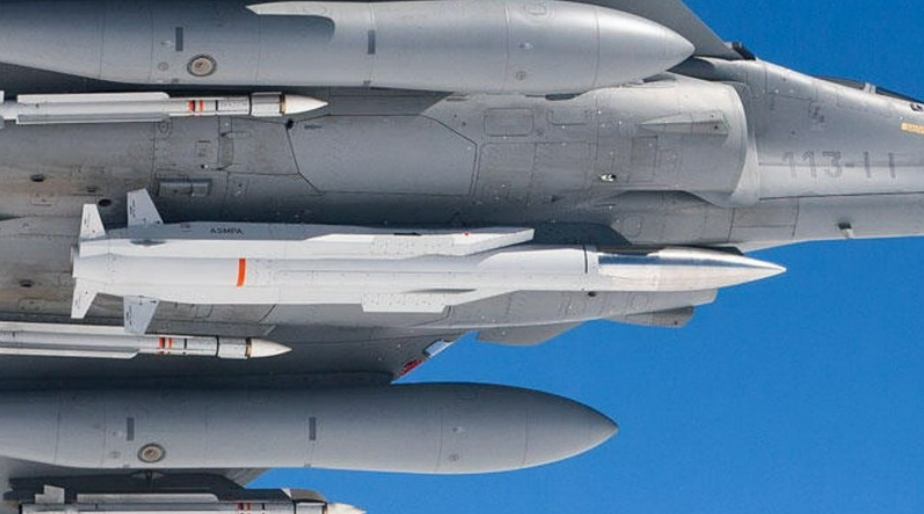By Hong Yan
On July 10 local time, a UK-France summit was held in London. Following the summit, British Prime Minister Keir Starmer announced that the declaration signed by the UK and France would, for the first time, allow the two countries to coordinate their nuclear forces, calling it a significant leap forward in the UK-France partnership.
According to reports, the UK and France signed the Northwood Declaration , marking the first time the two sides have explicitly agreed to coordinate their respective independent nuclear deterrent forces.

A Vanguard-class nuclear submarine with the US-made Trident II D5 submarine-launched ballistic missile returns from patrol.
As the only two nuclear-armed states in Europe, the UK and France have long pursued very different nuclear strategies. The former builds its nuclear posture around reliance on the US, while the latter insists on maintaining an independent nuclear policy. The timing of the two countries signing a nuclear cooperation agreement and issuing a joint declaration is telling.
This move likely reflects a sense of disappointment among European nations regarding the US commitment to regional security. Under the new Trump administration, Washington has been readjusting its strategy toward Europe, and the traditional transatlantic partnership has grown increasingly strained. It can be said that Europe's confidence in the US security guarantee has been partially eroded. As the only nuclear-armed states in Europe, the UK and France moving closer at this moment signals not only their dissatisfaction with Washington but also Europe's determination to enhance its security autonomy, a rare assertion of Europe's independent defense resolve.
France's move to coordinate its nuclear deterrent with the UK may also reveal its lingering ambition, yet limited capacity, to independently lead Europe's security and nuclear defense. On paper, France relies on just four Triomphant-class ballistic missile submarines to shoulder its strategic nuclear deterrence, while its air-based nuclear forces mainly consist of Dassault Rafale fighter jets carrying tactical nuclear weapons. In comparison, this capability still falls far short of Russia's vast and comprehensive triad nuclear strike system. To enhance the effectiveness of Europe's nuclear deterrence, it may prove more practical and efficient in the near term for France to share this burden with a nuclear partner rather than pour immense time, effort, and resources into expanding its own arsenal alone.

A Rafale fighter jet carries an ASMP-A air-launched nuclear missile under its fuselage.
The UK's embrace of nuclear cooperation with France may well be driven by its long-standing strategy of maintaining a balance of power in Europe. Historically, Britain has often acted as a disruptive force on the European continent, playing the role of a “balancer” that pits the strong against the weak. Relying on its insular geographic position, the UK has maintained a special posture in European affairs, neither fully integrated nor completely detached. When Europe is in a position of relative weakness, Britain tends to actively engage in European affairs to boost its standing and secure its interests. Conversely, when a dominant power emerges on the continent or when Europe as a whole moves toward greater unity and strength, the UK often resorts to political, diplomatic, or economic means to sow discord and hinder European cohesion, thus preventing a united and powerful Europe from threatening its own interests.
It cannot be ruled out that London's high-profile announcement of sharing Europe's nuclear security framework with France is part of a calculated move to position itself to intervene in and influence Europe's security landscape for its gain in the future.
However, the practical impact of UK-France nuclear defense cooperation is likely to be limited. For nearly six decades, the UK's nuclear strategy has been heavily dependent on the US, so the possibility of the UK detaching from the US nuclear posture to build a truly European deterrence framework with France remains low. Therefore, this latest joint statement with France is more likely a demonstration of the UK's desire to show its stake in European security and reaffirm its place in the European family.
In the Northwood Declaration, the two countries declared that any adversary threatening the vital interests of either the UK or France may face a joint nuclear response. However, the threshold for what constitutes a threat to vital interests is extremely high, meaning the red line for a joint UK-France nuclear response holds little real strategic deterrent value.
Editor's Note: Originally published on thepaper.cn, this article is translated from Chinese into English and edited by the China Military Online. The information and opinions in this article do not necessarily reflect the views of eng.chinamil.com.cn.













